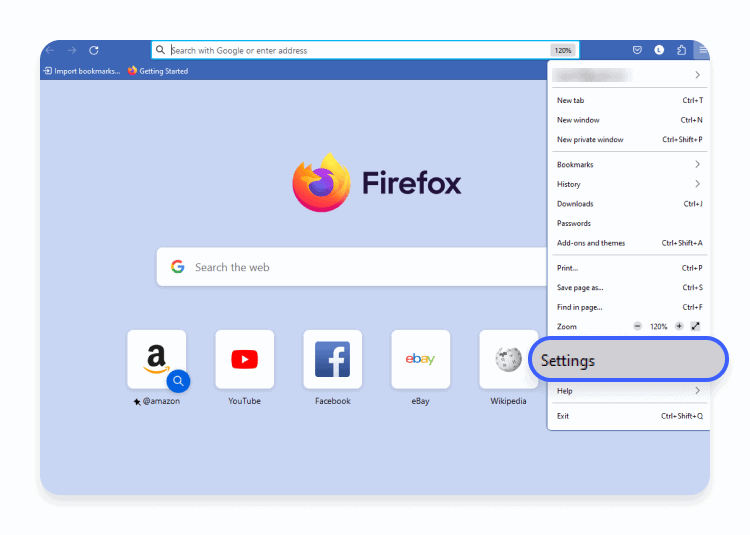Can Mozilla Firefox Improve Your Online Privacy And Security?

Mozilla Firefox is a popular web browser that claims to enhance online privacy and security. This article examines the effectiveness of Firefox in improving users’ online privacy and security.
It explores various features and functionalities offered by the browser, including Enhanced Tracking Protection, encrypted connections, secure password management, private browsing mode, customizable privacy settings, anti-phishing and malware protection, automatic updates for security patches, and its open-source and community-driven development.
By adopting an academic style of writing that is objective and impersonal, this article aims to present a comprehensive and unbiased evaluation of Firefox’s potential in safeguarding users’ online activities.
The analysis will consider the browser’s capabilities, limitations, and overall impact on enhancing online privacy and security.
Key Takeaways
- Open-source development in Firefox fosters collaboration and innovation.
- Advancement of features and functionalities in Firefox enhances online privacy and security.
- Community involvement in Firefox’s development enhances the ability to detect and address security flaws promptly.
- Creation of browser extensions and add-ons, encouraged by community-driven development, provides additional tools for users to protect their online activities.
Enhanced Tracking Protection
Enhanced Tracking Protection in Mozilla Firefox provides users with the ability to block third-party tracking cookies, thereby enhancing online privacy and security. By blocking cookies, Firefox prevents advertisers and other third-party entities from tracking users’ online activities and collecting personal information.
This feature is crucial as cookies are commonly used to track users across different websites, enabling targeted advertising and potentially compromising privacy. Additionally, Firefox also combats browser fingerprinting, a technique used to identify and track users based on unique browser configurations.
By blocking fingerprinting attempts, Firefox further safeguards users’ online privacy by making it more difficult for websites to track and identify individuals. Through these measures, Mozilla Firefox’s Enhanced Tracking Protection significantly enhances online privacy and security by minimizing the risks associated with cookie tracking and browser fingerprinting.
Encrypted Connections
Securing online communication through the use of encrypted connections can significantly enhance the protection of sensitive data transmitted over the internet. Data encryption is a crucial aspect of online privacy and security, as it ensures that information remains confidential and cannot be easily intercepted or accessed by unauthorized individuals.
Mozilla Firefox supports encrypted connections by implementing SSL/TLS protocols, which establish a secure channel between the user’s browser and the website they are visiting. This prevents attackers from eavesdropping on the communication and protects against potential data breaches.
Encrypted connections not only safeguard personal information, such as login credentials and financial details, but also ensure the integrity of the data being transmitted.
By using encrypted connections, users can have greater peace of mind knowing that their online activities are protected from prying eyes.
- Securely transmit sensitive data
- Protect personal information
- Prevent unauthorized access
- Safeguard against data breaches
- Maintain data integrity
Secure Password Management
A critical aspect of maintaining secure online practices involves employing effective strategies for managing passwords. Mozilla Firefox offers features that can enhance password security and management. One such feature is the built-in password generator, which creates strong and unique passwords for different websites. By using this password generator, users can ensure that their passwords are not easily guessable or vulnerable to brute-force attacks. Additionally, Mozilla Firefox supports two-factor authentication (2FA), which adds an extra layer of security by requiring users to provide a second form of verification, such as a fingerprint or a code sent to their mobile device, in addition to their password. This helps protect against unauthorized access even if a password is compromised. By utilizing these tools, Mozilla Firefox can improve online privacy and security for its users.
| Pros | Cons |
|---|---|
| Generates strong and unique passwords | Requires users to remember or store generated passwords |
| Provides an extra layer of security with 2FA | May require additional setup and configuration |
| Offers convenience for password management | Users may need to rely on Firefox for password storage |
Private Browsing Mode
Private browsing mode is a feature that allows users to browse the internet without leaving traces of their browsing history, cookies, or temporary files on their device. This mode ensures user privacy by preventing websites from tracking their online activities.
One way it achieves this is through data encryption, which secures the user’s data and prevents unauthorized access. Additionally, private browsing mode also masks the user’s IP address, making it difficult for websites to identify and track their location.
By encrypting data and masking IP addresses, Mozilla Firefox’s private browsing mode provides an added layer of security and privacy for users. However, it is important to note that while private browsing mode can enhance privacy and security, it does not guarantee complete anonymity and should be used in conjunction with other security measures.
Customizable Privacy Settings
To enhance user control over their online browsing experience, Firefox offers customizable privacy settings that allow individuals to adjust various parameters according to their personal preferences. These settings enable users to enhance their online privacy and security by controlling what information is shared and how it is stored. Firefox provides options to manage cookies, block tracking content, and prevent third-party tracking. Additionally, users can customize their privacy settings by installing browser extensions specifically designed for privacy protection. These extensions can further enhance privacy by blocking ads and trackers, encrypting connections, and even disguising online fingerprints. Furthermore, Firefox allows users to use privacy-focused search engines, which prioritize user privacy by not collecting or sharing personal data. By providing customizable privacy settings and supporting privacy-focused tools, Firefox empowers users to take control of their online privacy and security.
| Setting | Description |
|---|---|
| Manage Cookies | Control how Firefox handles cookies from different websites. |
| Block Tracking Content | Prevent websites from tracking your online activities. |
| Prevent Third-Party Tracking | Stop third-party websites from tracking you across the web. |
| Browser Extensions | Install extensions for enhanced privacy protection. |
| Privacy-Focused Search Engines | Use search engines that prioritize user privacy. |
Anti-Phishing and Malware Protection
Anti-phishing and malware protection is a crucial feature offered by Firefox, ensuring users’ peace of mind by effectively safeguarding against online threats and malicious activities.
With the rise of cyber threats, it is essential for users to adopt safe browsing habits and enhance their cybersecurity awareness. Firefox assists in this regard by providing robust protection against phishing attempts, which are deceptive tactics used by hackers to trick individuals into divulging sensitive information. The browser’s anti-phishing feature detects and blocks fraudulent websites, thereby preventing users from falling victim to scams.
Additionally, Firefox’s malware protection actively scans and blocks malicious software, protecting users from potential harm.
By incorporating these features, Firefox contributes to enhancing online privacy and security, empowering users to navigate the internet with confidence.
Automatic Updates for Security Patches
The functionality of automatic updates for security patches is a significant aspect of Firefox’s commitment to maintaining a secure browsing experience for its users. Regular software updates offer several benefits in terms of online privacy and security.
Timely security patches: Automatic updates ensure that users receive the latest security patches as soon as they are released. This helps in addressing vulnerabilities and protecting against potential threats.
Improved protection against malware and phishing attacks: By automatically updating security patches, Firefox can enhance its ability to detect and block malicious websites and protect users from falling victim to phishing scams.
Enhanced overall security: Regular updates not only address known vulnerabilities but also improve the overall security of the browser. This includes implementing new security features and strengthening existing ones.
Automatic updates play a crucial role in maintaining online security by ensuring that Firefox users have the most up-to-date protection against emerging threats and vulnerabilities.
Open-Source and Community-Driven Development
Open-source and community-driven development fosters collaboration and innovation in the creation of web browsers, leading to the continuous advancement of features and functionalities. Mozilla Firefox, being an open-source browser, benefits from the contributions of a diverse community of developers and users. This approach enables rapid identification and fixing of software vulnerabilities, enhancing online privacy and security.
Community involvement in Firefox’s development enhances its ability to detect and address security flaws promptly. The open-source nature of the browser allows for transparency and peer review, ensuring that any potential security risks are promptly identified and resolved. Furthermore, the involvement of a wide range of individuals with different perspectives and expertise leads to robust testing and scrutiny of the browser’s codebase.
Incorporating community-driven development also encourages the creation of browser extensions and add-ons that enhance privacy and security. These contributions provide users with additional tools to protect their online activities and personalize their browsing experience.
The table below illustrates the benefits of open-source and community-driven development in improving online privacy and security:
| Benefits of Open-Source and Community-Driven Development |
|---|
| Rapid identification and fixing of software vulnerabilities |
| Transparent and peer-reviewed codebase |
| Robust testing and scrutiny of the browser’s codebase |
| Creation of browser extensions and add-ons for enhanced privacy and security |
| Diverse perspectives and expertise in development |
Frequently Asked Questions
Is Mozilla Firefox compatible with all operating systems?
Mozilla Firefox is compatible with a wide range of operating systems, including Windows, macOS, Linux, and Android. It is designed to improve user experience and optimize browser performance, ensuring smooth functionality across different platforms.
Can I use Mozilla Firefox on my mobile device?
Mozilla Firefox can be used on mobile devices, offering a mobile experience that is comparable to the desktop version. Using Firefox on mobile provides advantages such as enhanced privacy and security features, ensuring a safer browsing experience.
Does Mozilla Firefox have a built-in ad blocker?
Mozilla Firefox has a built-in ad blocker that can enhance user experience by blocking unwanted ads. However, its effectiveness may vary as some ads may still bypass the blocker. Potential drawbacks include impacting website functionality and interfering with legitimate ads.
Can I sync my Mozilla Firefox settings across multiple devices?
The Mozilla Firefox Sync feature allows users to easily sync their settings across multiple devices, providing the advantage of a consistent browsing experience. Users can troubleshoot syncing issues by checking their Firefox account settings and ensuring they are connected to the internet.
How does Mozilla Firefox handle cookies and third-party tracking?
Mozilla Firefox employs various measures to handle cookies and third-party tracking. Its approach aims to protect user privacy and security effectively. Alternatives to Firefox for managing cookies and tracking include browsers like Google Chrome and Safari.






